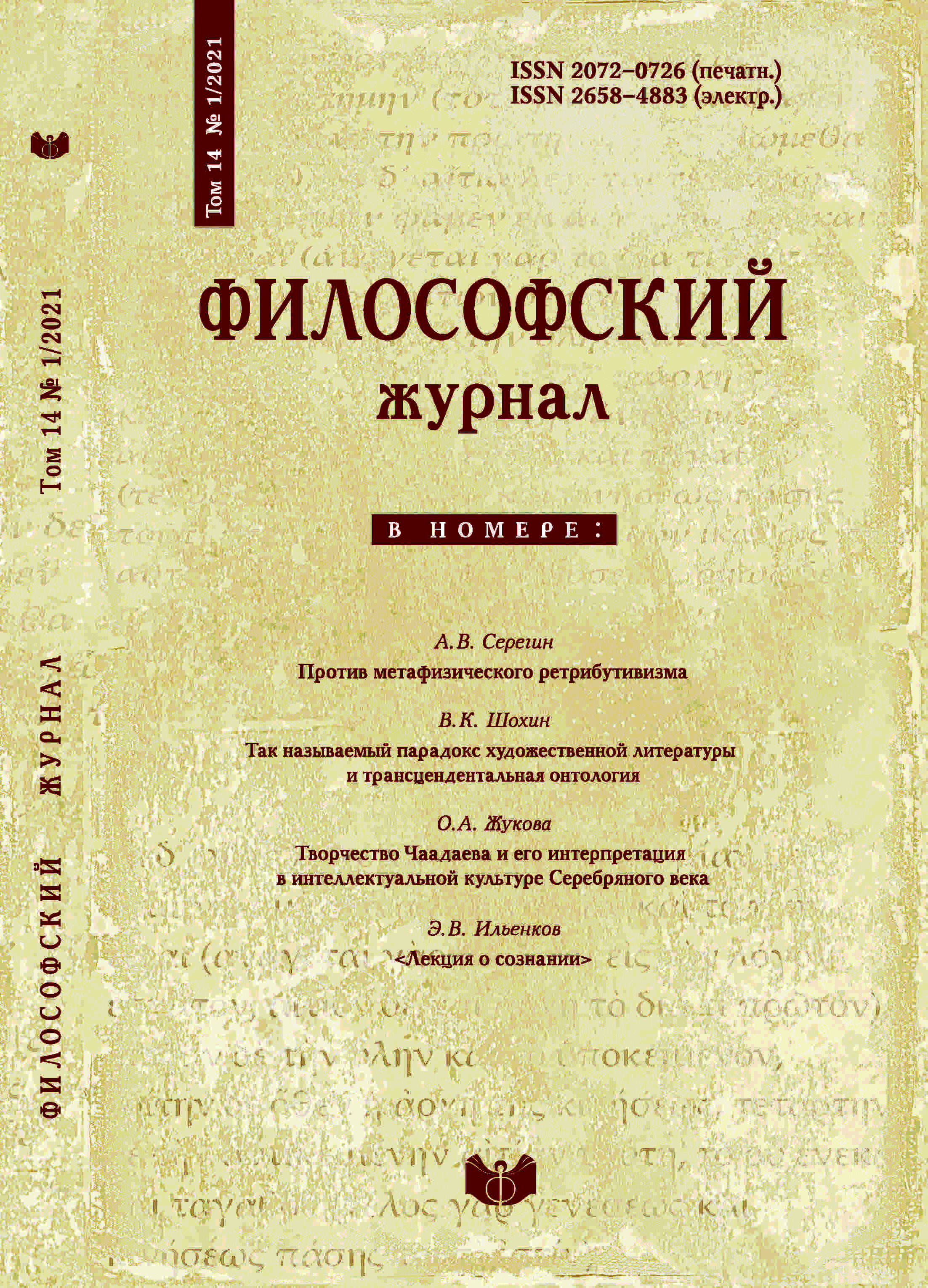A new Reading of “The Phenomenology of Spirit”:Brandom on Hegel
DOI:
https://doi.org/10.21146/2072-0726-2021-14-1-97-112Keywords:
Phenomenology of Spirit, recognition, alienation, modernity, self-consciousness, trust, Hegel, BrandomAbstract
Robert Brandom in his recently published commentaries to “The Phenomenology of Spirit” tries to re-actualize Hegel’s legacy, linking his speculative dialectics to the twentieth-century linguistic philosophy and pragmatism, with the ideas of G. Frege, L. Wittgenstein, and W. Sellars. His principal focus is on the issue of “the struggle for recognition”. In terms of “mutual” and “symmetric” recognition as a terminus ad quem of social communication, Brandom interprets the reciprocal confirmation of the normative statuses of individual subjects acting as equal participants in a collective “game of giving and asking for reasons”. This state of mutual recognition, Brandom maintains, can be achieved through overcoming the subjectivist alienation and egotism characteristic of the modernity. The author argues that in his discussion of this issue the American philosopher confuses two key concepts used by Hegel in “The Phenomenology of Spirit”: Entfremdung (“alienation”) and Entäußerung (“externalization”). The author claims that by emphasizing the negative side of Entfremdung, Brandom overlooks the meaning of Entäußerung (objectification), which, according to E. Ilyenkov, “is essential to the very definition of ‘Spirit’”.






